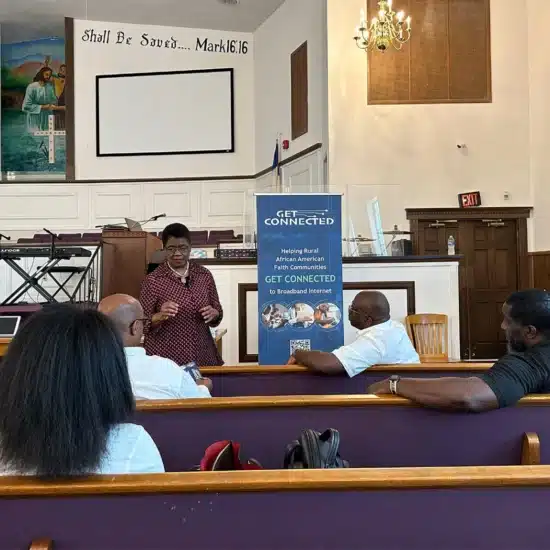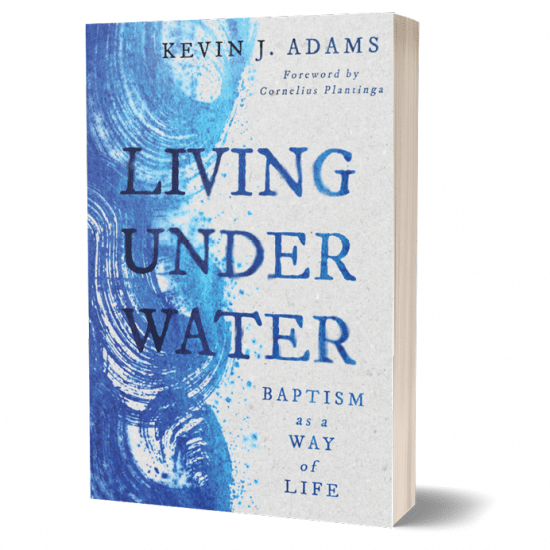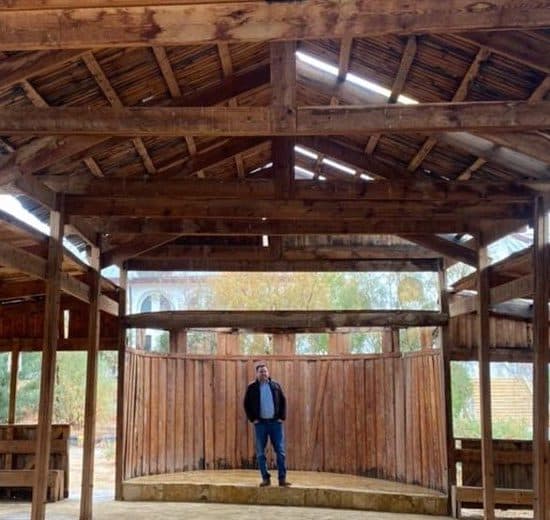Baptism and local church membership have been inextricably linked historically in the minds of many Baptists. But that view is shifting as a decline in denominational loyalty and the easy movement of American Christians among churches of all stripes have created what writer Phyllis Tickle is calling the “great emergence”—a swirling convergence of denominational traditions toward a spiritual Christian core.
Nearly half of American adults have switched denominational affiliation at least once, according to the Pew Forum on Religion and Public Life. As Baptist churches find growing numbers of Christians from other traditions knocking on their doors, assumptions about membership requirements have been shaken.
Although the vast majority of Baptists churches have retained their characteristic commitment to believer’s baptism by immersion, responses to membership requests vary—and more churches are exploring the available options.
Expanded watchcare
Baptists have long offered “watchcare” status to anyone wishing to affiliate with a church on a temporary basis without relinquishing membership in what they regard as their “home church”—a practice especially popular with college students. Typically, watchcare members’ participation is limited in some way, usually when it comes to voting on church business.
Faced with growing membership requests from Christians raised in traditions which don’t practice believer’s baptism, however, many churches have found watchcare a convenient vehicle to permit fellowship without modifying baptism requirements for full membership. In some churches, that has become watchcare’s primary purpose.
At Williams Trace Baptist Church in Sugar Land, near Houston, watchcare is “a way to catch and hold the attention of people who are not yet members,” said Pastor Phil Lineberger, whose church restricts full membership to Christians baptized as believers by immersion.
“For those who are Christians but are not baptized as we believe, we do this to keep families together,” said Lineberger. “If someone is a Methodist or Presbyterian, we want the family to join together at the same time. What we want to do is help them understand that the family unit is very important, and we consider it to be sacred. We don’t want to create division.”
While membership at Williams Trace is tied to baptism experience, Lineberger downplays the privileges of membership, which usually have to do only with disposition of property or other routine issues, he said.
“I’ve never found a potential church member who came to our church specifically to be able to vote on something,” he said. “The idea that you have to be a member to vote on these things—they really don’t care about that. You can’t build a great church around a business meeting.”
For Lineberger, watchcare also is associated with something closer to what the Emerging Church would describe as “belong first, then believe.”
“We allow them to become part of our fellowship and we’ll watch over them, whether or not they ever become a Christian or a Baptist,” he said. “They come and listen and participate and decide for themselves what they want to do.”
In the last few years, the church has baptized both Muslims and Jews who made professions of faith Christ after years of watchcare affiliation. One watchcare member—a Jewish man whose wife is Christian—is a teacher in the church’s college Sunday school class, where his grasp of the Old Testament and fluency in Hebrew make him a “rich resource,” said Lineberger.
“Some churches would be threatened” by a non-Christian teaching Sunday school, Lineberger said. “We’re not.”
Open membership
A growing number of Baptist churches—particularly on the East Coast—are adopting open membership policies, not requiring immersion of Christians who have been baptized by any form, including infant baptism.
“The conversation I have with potential members (from other denominations) is to emphasize soul freedom and the priesthood of the believer,” said David Washburn, pastor of First Baptist Church in Waynesboro, Va., which adopted an open membership policy in the 1980s.
“I ask, ‘Has there been a time beyond your infant baptism when you were able to claim faith in Christ and make it your own?’
“If they tell me they have claimed that faith and that it is their own experience, we don’t re-baptize them.”
On the other hand, the conversation often leads in a different direction, he said.
“Sometimes they say, ‘Well, let me think about that. That faith really wasn’t mine.’ Our openness allows us to extend the conversation to talk about baptism in a more significant way. … We cheapen the significance of baptism when we make it more of a ‘punch-the-ticket’ requirement for membership.”
First Baptist Church in Clemson, S.C., whose open membership policy dates to the 1970s, is motivated by the same desire to avoid devaluing baptism—and by the baptismal experience of its pastor.
“I grew up as a Methodist and was sprinkled as a baby,” said Rusty Brock, who became pastor in Clemson about five years ago. “Then I was sprinkled again at 13, and when I was 18, I joined a Baptist church which required that I be immersed. I told the pastor I was a Christian and had been baptized, and he agreed, but he had to abide by the church’s bylaws. So, when he baptized me, he said, ‘Rusty has been a Christian for a long time, and we’re baptizing him into the Baptist faith.’
“I didn’t think about it at the time,” said Brock, a graduate of Baptist Theological Seminary at Richmond. “But when I got to seminary and thought about it, I said: ‘Wait a minute. You don’t baptize people into a denomination; you baptize them into the body of Christ. Period.’ I realized we had made baptism an initiation into church membership.”
Both the Waynesboro and Clemson churches continue to baptize only believers by immersion. But like Washburn, Brock said the less restrictive membership practice “opens the door so you can have a dialogue with people. You can ask, are you secure in your baptism? And if faith in Christ is something you have never claimed, let’s talk about it and pray about it and consider baptism. But if your earlier baptism is valid in your faith journey, who are we to say that the last 20 years of your Christian discipleship doesn’t count?”
Believer’s baptism by any mode
In 2004, Northwest Baptist Church in Ardmore, Okla., modified its membership policy, retaining believer’s baptism as a requirement for membership but no longer insisting that it be by immersion.
“We feel that baptism should come after a profession of faith in Christ,” said Jonathan Blose, the church’s associate pastor. “But we don’t insist on a particular mode.”
Pastor Leonard Ezell, who has been at Northwest for less than two years, said probably half of his congregation comes from a non-Baptist background—and he wants them to feel welcomed.
“If they feel that their baptism as a believer—by immersion or sprinkling or pouring—was valid, we’ll accept them,” he said. “If they request to be rebaptized, of course we’ll do that, too.”
Separating baptism and membership
At Faith Community Church, a Southern Baptist congregation in Barre, Vt., a concern not to devalue baptism by associating it only with church membership led it to separate the two.
“Even in churches that only practice believer’s baptism, if we automatically link baptism and church membership, we may well be hindering instead of helping people’s spiritual growth,” Pastor Terry Dorsett wrote in a recent blog.
Dorsett, who also is director of missions for the Green Mountain Baptist Association in northern Vermont and is partly funded by the Southern Baptist Convention’s North American Mission Board, wrote that in his church, believer’s baptism by immersion makes a person eligible for membership but doesn’t automatically add him or her to the roll.
“After they are baptized, if they want to become a member of church, they go through a separate process,” Dorsett wrote. “Though this approach goes against the tradition of most churches in our own particular denomination, we feel that it more accurately follows the biblical model.”
Dorsett maintained that while some New Testament passages seem to link baptism and church membership, others don’t.
“For example, the Ethiopian Eunuch in Acts 8 came to personal faith in Christ and was baptized in the middle of the desert,” Dorsett wrote. “There was literally no church for him to join. Philip baptized him anyway, resulting in him being a baptized Christian but not a member of any particular church. He most likely became part of a church at some future date, but not at the moment of his baptism. This passage indicates that baptism and church membership are not automatically connected.”
Redefining membership
At All Souls, a congregation with Virginia Baptist ties that is forming in Charlottesville, Va., the “bigger conversation is reflecting on what membership means,” Pastor Winn Collier said.
“It’s just not missional to say that before you can become part of us in a meaningful way you have to think like us, act like us, believe like us,” said Collier. “At the same time, there is something important about people who are truly attempting to live a way of life together and who are compelled by the same narrative, which for us is the narrative of Jesus—dead for our sins, resurrected, inviting us into the kingdom of God.”
As a sign of deeper commitment to the community, All Souls offers those who are part of the community an opportunity to adopt a rule of life that focuses on hospitality, restoration and peace.
“We ask people to commit to that way of living and form a personal rule of life for a year and challenge people to make specific choices about how they live their lives in those three areas,” Collier said. “But we don’t use the term ‘membership’ because membership speaks of being an insider. We say that no one is receiving any more privileges by taking on this rule of life. Everyone has a place at the table, everyone belongs, everyone has a part. But if you are ready to lay down your life for Jesus, consider adopting this rule of life.”
As a new church, Collier said, All Souls still is determining how and when baptism connects with the rule of life, and some observers might claim “we take a lower view of baptism because someone can be part of us without going through it.
“But, ironically, we take a much higher view of baptism. It’s not something where we just dunk believers. It’s not just an object lesson of their individual faith. The community of Jesus is accepting them; it’s not just them grabbing God but God grabbing them.
“For all of our attempts to try and come up with a culturally alive way to invite people into community—and I think we must always be contextually attuned—we just can’t recreate baptism. There’s nothing better. You die with Jesus, and your old life is drowned, and you come up resurrected and that’s the gospel. It’s powerful. And over the years following that act, we learn more and more about what it means.”






